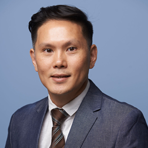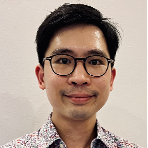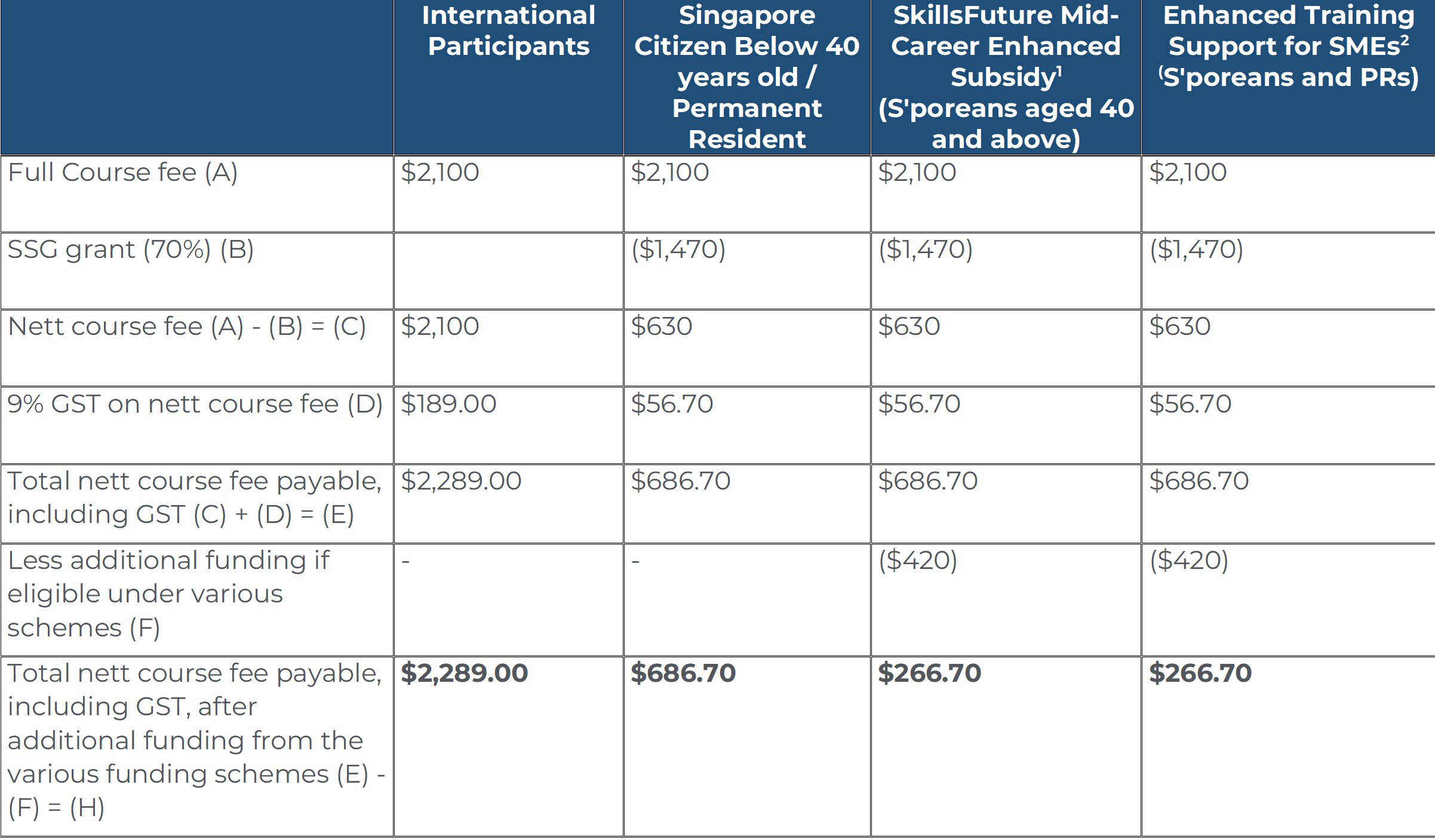Dates: 28 - 30 April 2025, 15 - 17 September 2025
Level: Intermediate
Duration: 3 days
Venue: Singapore University of Social Sciences
Social systems are complex adaptive systems that are designed and have evolved over time to fulfil their mission and purpose within their operating contexts. Transformation of such systems, including the services that they provide, such as to improve outcomes or meet needs, is a complex endeavour that often brings about unintended consequences. Existing methods to drive large scale whole system transformation is slow, often fails to scale, and may impede successful implementation in local contexts.
Any systemic transformation method with the hope of accelerating whole system change must address the need to train and gather numerous stakeholders as co-designers, it must enable a continual series of innovations that remain synergistic despite their introduction at different time points and into different sub-systems of a complex adaptive systems, and it must guard against incremental-only innovations, premature convergence and lock-in into transformation paths that are less transformative or with potential negative effects.
This workshop aims to impart to participants a foundational theory for deep learning and organizational effectiveness and health in social systems. It will also introduce critical design-, systems-, and complexity-thinking enabled methods and tools in the form of “playbook”, i.e., in the form of an integrated approach that will systematically design, prioritize and test your system and services transformation actions through time, anchored on a three-step iterative storytelling, model building and pathfinding process.
Aspiring new leaders and stewards of complex social systems and businesses, as well as leaders and practitioners of strategic change and transformation..
- Deep Learning and Problem Solving for Systemic Effectiveness & Health
- Seeing & Understanding Systems
- Working with Systems
- Core Theory of Success & Systems Effectiveness Toolbox
- Health System Transformation Playbook: An Integrated Design, Systems, Complexity-Thinking Approach
- Health System Transformation Playbook: An Integrated Design-, Systems-, Complexity-Thinking Approach
By the end of this course,
- Appreciate the importance of deep learning and understand how its components enable problem solving for systemic effectiveness and health.
- Learn and practice systems-thinking as new language and models for collectively understanding social services & systems behavior and outcomes.
- Collectively discuss, reflect, and learn about participants’ own social & services systems.
- Appreciate the Core Theory of Success and learn about the application of Systems Effectiveness Tools Box as approach and methods/tools to support deep learning and systemic problem solving.
- Learn about the Health System Transformation Playbook and appreciate the need for an integrated design-, systems-, and complexity-thinking approach to transform complex/large social systems
- Learn about the Yishun Health regional population health system case study and collectively practice storytelling, model building and pathfinding using the steps of the playbook to generate possible systemic interventions for the participants’ own social & services systems.
A. Knowledge and Understanding (Theory Component)
By the end of this course, participants should be able to:
- Understand key principles of design, systems and complexity thinking
- Understand systematic and coherent system and services planning and organization development
- Apply design, systems and complexity thinking frameworks and models to navigate common social system issues
B. Key Skills (Practical Component)
By the end of this course, you should be able to:
- Create a model of their own social systems and derive model-prescribed actions that are more applicable and systemic for their own organizational and social systems contexts.
- Lead and accelerate transformation of large/complex social systems within their own organizational and social systems contexts.
| Time | Agenda |
|---|
| Day 1 |
| 08:30 - 09:15 | Introduction, Ice Breakers, and Course Overview |
| 09:15 - 10:00 | Deep Learning & Problem Solving for Systemic Effectiveness and Health |
| 10:00 – 11:30 | Seeing Systems I: Systems Theory & Levels of Perspective
(Includes 15min break) |
| 11:30 – 13:00 | Seeing Systems II: Relationships & Boundary |
| 13:00 – 14:00 | Lunch |
| 14:00 – 16:00 | Integrative Exercise: Social Systems Mapping Exercises
Group Assessment 1: Presentations on Social Systems Mapping
(Includes 15min break) |
| 16:00 – 17:45 | Seeing Systems III: Emergence & Adaptation |
| 17:45 – 18:00 | Individual Assessment 1 - Day 1 Learning Reflections |
| Time | Agenda |
|---|
| Day 2 |
| 08:30 – 10:45 | Understanding Systems I: Common Models & Frameworks
(Includes 15min break) |
| 10:45 – 12:00 | Understanding Systems II: Common Models & Frameworks |
| 12:00 – 13:00 | Working with Systems I: Systemic Challenges, Hierarchy of Choices & Action Modes |
| 13:00 – 14:00 | Lunch |
| 14:00 – 15:45 | Working with Systems II: Core Theory of Success & Systems Effectiveness Toolbox
(Includes 15min break) |
| 15:45 – 17:45 | Integrative Exercise: Social Systems Mapping Exercises
Group Assessment 1: Presentations on Social Systems Mapping
(Includes 15min break) |
| 16:00 – 17:45 | Integrative Exercise: Understanding & Working with Social Systems
Group Assessment 2: Presentation on Working with Social Systems |
| 17:45 – 18:00 | Individual Assessment 2 - Day 2 Learning Reflections |
| Time | Agenda |
|---|
| Day 3 |
| 09:00 – 10:30 | Working with Systems III: Health Systems Transformation Playbook – An Integrated Design-, Systems-, Complexity-Thinking Approach
(Includes 15min break) |
| 10:30 – 12:00 | Social Systems Case Study: Yishun Health – A regional population health system in northern Singapore |
| 12:00 – 13:00 | Lunch |
| 13:00 – 15:00 | Integrative Exercise: Storytelling, Model Building and Pathfinding for Social Systems
(Includes 15min break) |
| 13:00 – 14:00 | Lunch |
| 15:00 – 16:30 | Group Assessment 3: Presentations on Storytelling, Model Building and Pathfinding for Social Systems |
| 16:30 – 17:00 | Conclusion
Individual Assessment 3 - Day 3 Learning Reflections |
- 3 X Individual Assessments via Personal Reflections, Written & Submitted
- 3 X Group Assessments via Group Presentation of Integrative Exercises, Written/Drawn & Submitted e.g., in the form of photo of flip charts, or power point slides.
- English proficiency in speaking and writing.
- Targeted at particpants from health and social sector organizations or public sector organizations, preferably with some experience in corporate, business or organizational leadership, strategy deployment and change management/transformation.

A/Prof Ng Yeuk Fan
A/Prof Ng Yeuk Fan graduated with an MBBS from the Faculty of Medicine, National University of Singapore and holds an MPH from the Harvard School of Public Health, United States. He is an accredited specialist in Public Health Medicine by the Singapore Specialist Accreditation Board and the Singapore Medical Council. Yeuk Fan is currently the Director & Head of Corporate Development at Yishun Health, which is a regional population health and hospital system of the National Healthcare Group. As the Director, he is responsible for Health System and Services Planning & Evaluation, Insights & Analytics, Corporate Planning, and Organization Development. Yeuk Fan is also an Associate Professor at the Saw Swee Hock School of Public Health and Duke-NUS Medical School Health Systems & Services Research Program at the National University of Singapore. He is concurrently a Senior Consultant and Core Faculty in the National Preventive Medicine Residency Programme at the National University Health System and a clinical teacher at the Lee Kong Chian School of Medicine at the National Technological University. His academic and research interests include the application of systems thinking, design thinking and complexity thinking in health systems, value-based care, integrated care, population health and health systems transformation.

Dr Teo Ken Wah
Dr Teo Ken Wah is a Preventive Medicine Senior Resident experienced in developing and implementing national health and hospital policies, regional health system transformation initiatives, and novel health and social service integration and in-hospital care redesign pilots. He holds an MBBS from Yong Loo Lin School of Medicine, and an MPH from Saw Swee Hock School of Public Health. Ken holds several portfolios: (1) as Consultant, MOH Office for Healthcare Transformation, he is responsible for designing, implementing, monitoring and evaluating a national Community Hospital of the Future program, (2) as Consultant, Yishun Health Corporate Development, he continues to co-develop health system transformation approaches, and (3) as Senior Resident, Changi General Hospital, he leads the reorganization of continuity care disciplines to drive the Healthier SG agenda. Ken also consults on an ad-hoc basis for MOH Cambodia, non-profit organizations, healthcare insurers, private medical clinics, and other industry partners.
Application Procedures
Please submit the following documents to [email protected]:
- Coloured copy (back and front) of NRIC for Singaporeans and PRs, or "Employment"/"S" Pass for foreign applicant
- Application form
Course Fee

1 Mid-Career Enhanced Subsidy: Singaporeans aged 40 and above may enjoy subsidies up to 90% of the course fees.
2 Enhanced Training Support for SMEs: SME-sponsored employees (Singaporean Citizens and PRs) aged 21 and above may enjoy subsidies up to 90% of the course fees.
Participants are required to achieve at least 75% attendance and pass any prescribed examinations/assessments or submit any course/project work (if any) under the course requirement.
Participants are required to complete all surveys and feedbacks related to the course.
The course fees are reviewed annually and may be revised. The University reserves the right to adjust the course fees without prior notice.
Singapore University of Social Sciences reserves the right to amend and/or revise the above schedule without prior notice.
For clarification, please contact the SUSS Academy via the following:
Telephone: +65 6248 0263
Email:
[email protected]